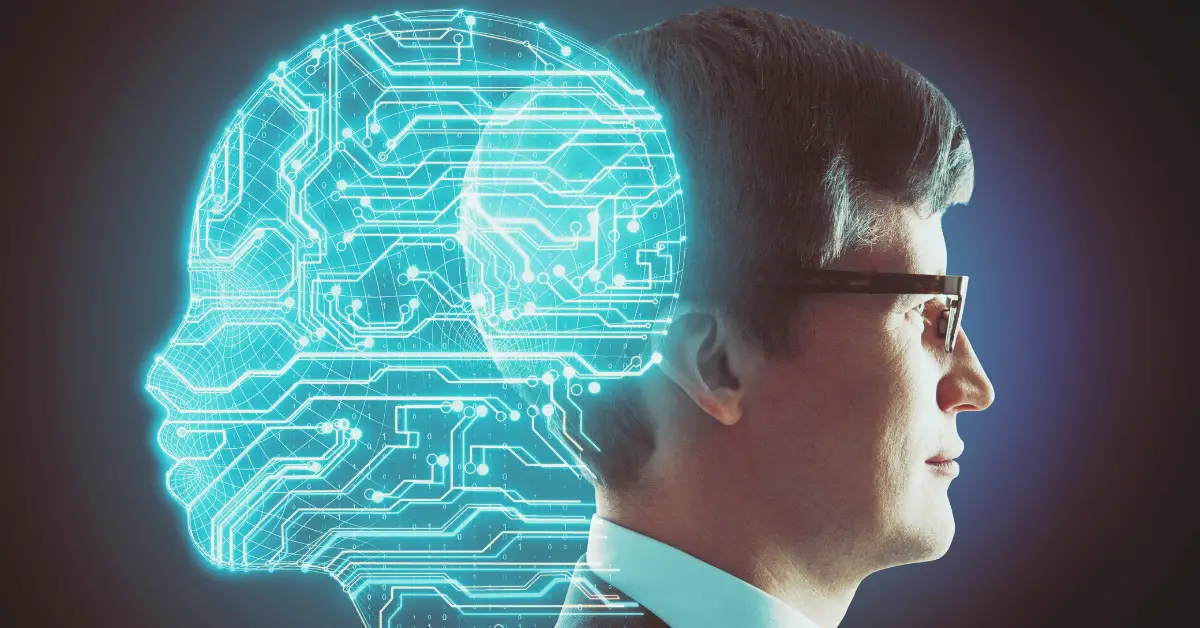Are you concerned about the impact of AI on your career? Learn about the top 10 majors that offer a promising future in the age of automation.
As the world embraces the age of artificial intelligence and automation, it’s natural to wonder which careers will stand the test of time. Fear not, future scholars!
We’ve compiled a list of 10 majors that, for now, remain relatively robot-resistant. These fields of study emphasize human creativity, empathy, and complex problem-solving skills that are difficult for our machine counterparts to replicate. Dive into these majors and secure your future in a rapidly evolving world where the human touch still reigns supreme!
In this blog post, we’ve reviewed the majors that robots can’t replace, combining research and reputable sources such as the US Bureau of Labor Statistics website, Forbes, and the World Report Survey.
Table of Contents
#1. Nursing
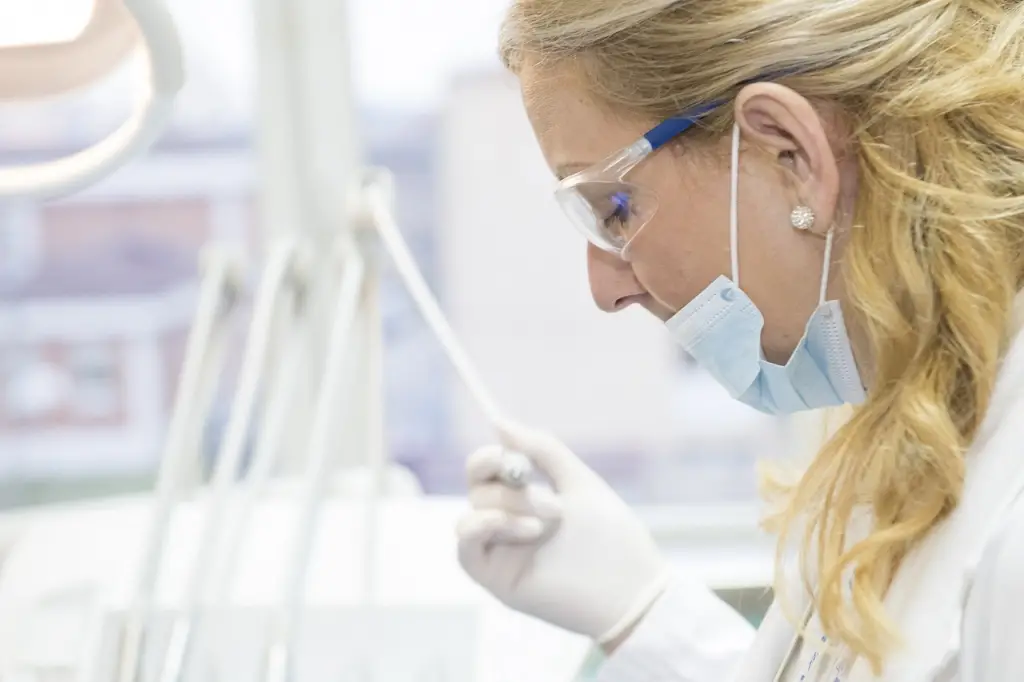
Nursing is a profession within the healthcare sector that focuses on the care of individuals, families, and communities to help them attain, maintain, or recover optimal health and quality of life.
Nurses work closely with patients, providing physical, emotional, and psychological support, as well as administering treatments and medications.
Which tasks can be automated?
Robots and artificial Intelligence helps nursing professionals by performing the following tasks:
- Data entry and record-keeping: With advancements in electronic health records (EHRs) and other digital systems, robots and AI help streamline the process of entering patient information and updating records.
- Medication dispensing: Automated medication dispensing systems can help reduce human error and ensure that patients receive the correct medications and dosages.
- Monitoring vital signs: Wearable devices and remote monitoring systems may help track patients’ vital signs, allowing nurses to quickly identify any abnormalities or changes in a patient’s condition.
Which tasks are better with a human touch?
Despite the potential for automation in some areas, many tasks within nursing cannot be replaced by robots. These require the human touch, empathy, and critical thinking skills that nurses possess.
- Building rapport with patients: Nurses play a crucial role in establishing trust and rapport with patients. This emotional connection is essential for effective care and cannot be replicated by robots.
- Providing emotional support: Nurses often provide emotional support to patients and their families during difficult times. This requires empathy, understanding, and genuine human connection, which robots cannot provide.
- Educating patients and families: Nurses play a vital role in educating patients and their families about their conditions, treatment options, and self-care. This requires clear communication and the ability to tailor information to each patient’s unique needs and circumstances.
Which schools offer this program?
The following schools offer degree programs in nursing:
- Duke University
- The University of Arizona
- Emory University
Here is a list of the 25 Best Nursing Schools. Check out the Must-Read Nursing Books and find the what the 10 Highest Paying Nursing Jobs are.
What are experts saying about this career?
As automation and artificial intelligence continue to revolutionize various industries, experts at the US National Institute of Health agree that the nursing profession remains firmly rooted in human skills that are irreplaceable.
While technology can undoubtedly assist with specific tasks, the core of nursing practice relies on social or emotional intelligence and human connection.
Moreover, nursing practice is grounded in ethical principles that guide decision-making and prioritize patient well-being.
This ethical framework, combined with the complex emotional landscape of healthcare, makes it unlikely that robots will replace the vital role that nurses play in providing compassionate care.
#2. Dentistry
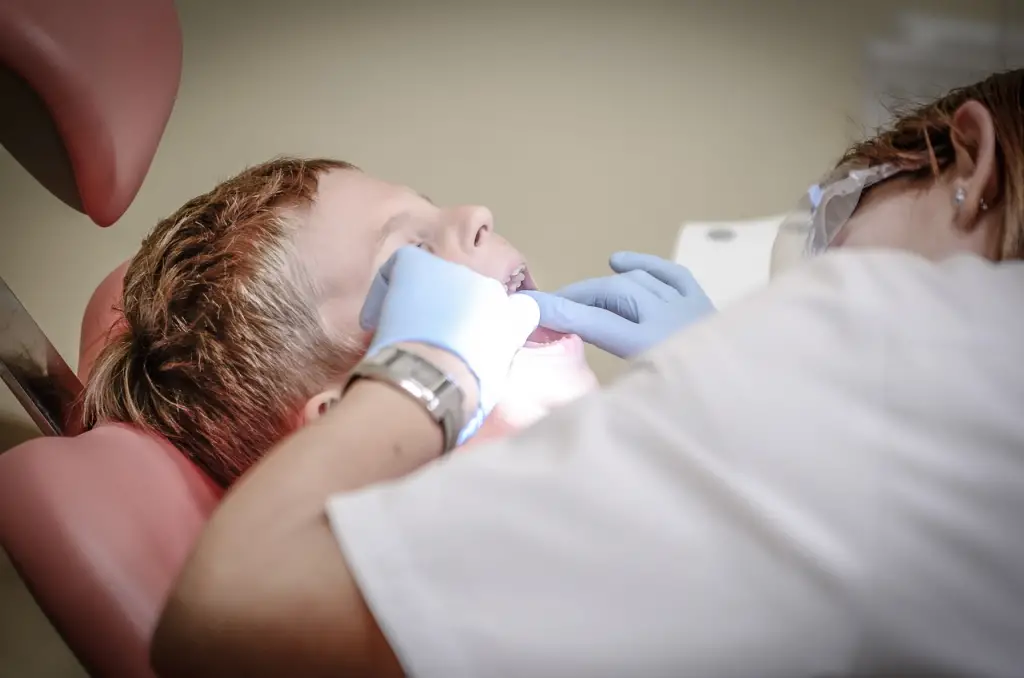
Dentistry is a branch of medicine that focuses on diagnosing, preventing, and treating conditions affecting the oral cavity, teeth, gums, and related structures. Dentists play a crucial role in maintaining oral health, which is vital for overall well-being. Some of the key responsibilities of dentists include:
- Diagnosing and treating oral diseases
- Performing dental procedures, such as fillings, extractions, and root canals
- Designing and fitting dental prostheses, like crowns and dentures
- Educating patients on proper oral hygiene and preventive care
Which tasks can be automated?
While technology has made significant advancements in dentistry, most of these innovations are designed to assist dentists rather than replace them. Some tasks that can be automated or enhanced by technology include:
- Dental Imaging: Digital X-rays and 3D imaging technologies have revolutionized the way dentists diagnose and plan treatments, providing more accurate and detailed images.
- Appointment Scheduling: Online booking systems and automated reminders streamline the appointment scheduling process and reduce the workload of dental office staff.
- Patient Records Management: Electronic health records (EHRs) help dentists efficiently store and access patient information, improving the overall quality of care.
Which tasks are better with a human touch?
Despite these technological advancements, there are several aspects of dentistry that robots cannot carry out. Some of these tasks include:
- Clinical Judgment: Dentists need to use their expertise and critical thinking skills to diagnose and treat complex oral health issues, a task that cannot be replicated by robots.
- Manual Dexterity: Dental procedures require precise hand-eye coordination and fine motor skills, which are difficult for robots to replicate.
- Patient Communication: Dentists need to build trust with their patients, explain treatment options, and provide personalized care, all of which require strong interpersonal skills that robots cannot emulate.
- Emergency Care: In situations where urgent dental care is needed, such as a severe toothache or a broken tooth, a human dentist’s ability to assess and treat the problem quickly and effectively is irreplaceable.
Which schools offer this program?
- The University of Illinois at Chicago
- University of Southern California
- Boston
Here is a list of the 25 Best dental schools. Find out what the 10 Highest Paying Dentist Jobs are. And check out the Must-read Dentistry Books.
What are experts saying about this career?
While technology continues to advance and reshape various industries, experts (such as Dr. Jacquie Smiles) agree that the human brain remains indispensable in dentistry.
Although innovations like digital imaging and robotic-assisted procedures can enhance precision and efficiency, the complex nature of dental treatment requires human judgment, adaptability, and interaction.
Dentists must be able to assess each patient’s unique needs, develop personalized treatment plans, and provide the reassurance and comfort that only a human can offer.
#3. Education
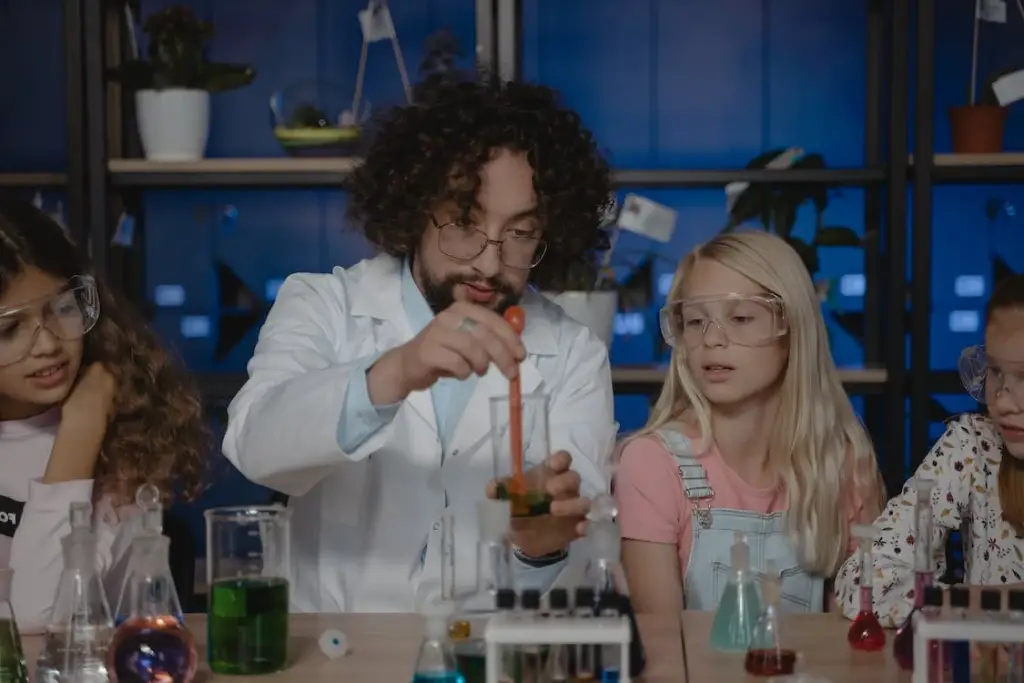
Education is a field that focuses on the development and implementation of teaching and learning strategies to help students acquire knowledge, skills, and values.
Educators play a vital role in shaping the minds of future generations and fostering their intellectual, social, and emotional growth. Some of the key responsibilities of educators include:
- Designing and delivering engaging lessons
- Assessing student progress and providing feedback
- Developing and implementing classroom management strategies
- Collaborating with colleagues, parents, and other stakeholders to support student success
- Engaging in professional development to stay current with best practices in education
Educators also manage interpersonal conflict in the classroom or among other teachers.
Which tasks can be automated?
Educational technology has improved education, but most of its advances have been used to make teachers’ jobs easier rather than taking them over completely. For example:
- Lesson Planning: Online resources and lesson planning tools can help educators streamline the process of designing engaging and effective lessons.
- Grading: Automated grading systems save time and increase consistency in evaluating student work, particularly for multiple-choice and short-answer assessments.
- Attendance Tracking: Digital attendance tracking systems simplify the process of monitoring student attendance and identifying patterns of absenteeism.
- Communication: Online platforms and messaging tools facilitate communication between educators, students, and parents, making it easier to share information and updates.
Which tasks are better with a human touch?
Despite efforts to automate many aspects of education, some crucial tasks remain uniquely suited for human beings. These include:
- Building Relationships: Educators need to establish trust and rapport with their students, which is essential for creating a supportive and inclusive learning environment. This requires empathy, compassion, and strong interpersonal skills that robots cannot replicate.
- Adapting Instruction: Educators must be able to identify individual student needs and adjust their teaching strategies accordingly, a task that requires human intuition and creativity.
- Providing Emotional Support: Students often face challenges and setbacks, and educators play a crucial role in providing encouragement, guidance, and emotional support to help them overcome these obstacles.
- Managing Classroom Dynamics: Classroom management involves addressing behavioral issues, fostering positive social interactions, and creating a safe and respectful learning environment, all of which require a human touch.
Which schools offer this program?
Many school offer education degrees but the best include:
- University of Oregon
- Arizona State University
- University of Minnesota Twin Cities
Here is a list of the 25 Best Education Schools and the 10 Highest Paying Teaching Jobs.
What are experts saying about this career?
As technology continues to advance and reshape various industries, experts agree that human connection remains integral to education.
While digital tools and artificial intelligence can supplement and enhance learning experiences, they cannot replace the essential aspects of teaching that rely on human interaction and understanding.
#4. Philosophy
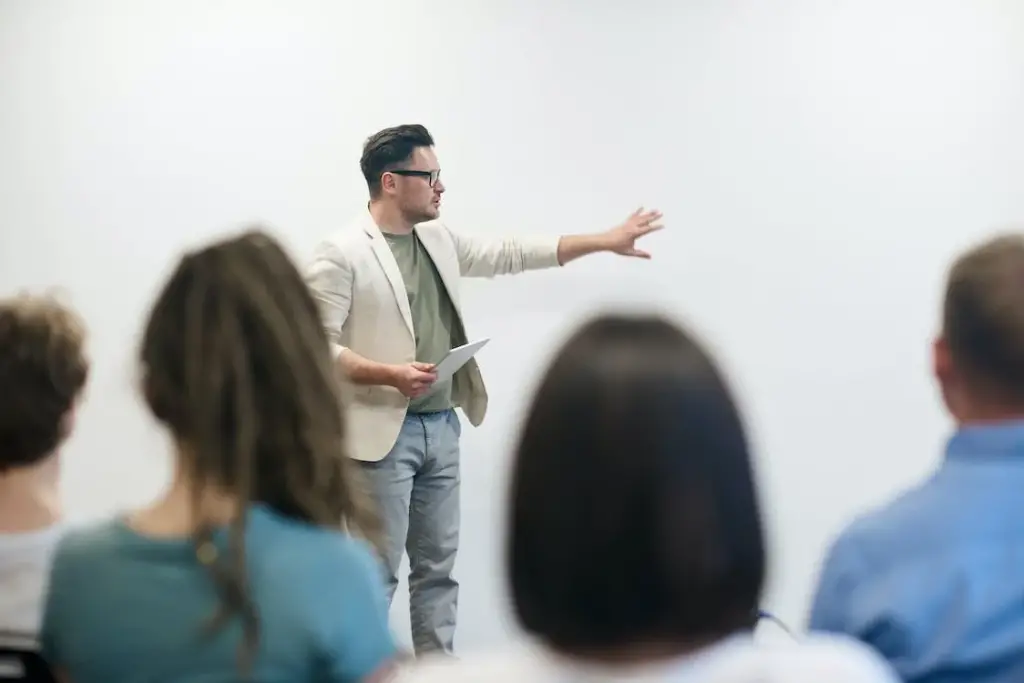
Philosophy is the study of fundamental questions about existence, knowledge, values, reason, mind, and language. It involves critical thinking, logical analysis, and the exploration of abstract concepts. Philosophy majors develop skills in problem-solving, communication, and reasoning, which are essential in various professional fields.
Which tasks can be automated?
While certain aspects of philosophy may be susceptible to automation, it is important to note that these tasks are relatively limited. Some of these tasks include:
- Data Collection and Analysis: AI can assist in gathering and organizing large amounts of data from various philosophical texts and articles, making it easier for philosophers to access and analyze information.
- Language Translation: Automated translation tools can help philosophers read and understand texts in different languages, broadening their scope of knowledge.
- Basic Logical Analysis: AI performs basic logical analysis and identifies fallacies in arguments, allowing philosophers to focus on more complex and nuanced aspects of their work.
Which tasks are better with a human touch?
Despite the potential for automation in some areas, the core aspects of philosophy remain uniquely human. Some tasks that cannot be automated include:
- Creative and Critical Thinking: Philosophy requires the ability to think creatively and critically, exploring abstract concepts and challenging established ideas. AI may assist in analyzing data, but it cannot replicate the human capacity for original thought and deep understanding of complex issues.
- Empathy and Moral Reasoning: Philosophers often engage in ethical debates and discussions, requiring a deep understanding of human emotions, values, and experiences. AI lacks the ability to empathize and engage in moral reasoning, making it unsuitable for addressing these essential philosophical questions.
- Interpretation and Contextual Understanding: Philosophy involves interpreting and understanding texts and ideas within their historical and cultural contexts. AI may be able to identify patterns and trends in data, but it cannot grasp the nuances and complexities of human culture and history.
Which schools offer this program?
Harvard and Stanford Universities are some of the best schools for philosophy. You might also be interested in reading 10 Highest Paying Jobs For Philosophy.
What are experts saying about this career?
In an era where artificial intelligence and automation are transforming various industries, experts argue that the abstract and complex nature of philosophical thought makes it unlikely that robots will replace human philosophers.
The nuanced understanding, empathy, and creativity required to navigate the intricacies of philosophical inquiry are qualities that remain unique to human beings.
As we continue to seek answers to life’s most profound questions, the role of philosophers in shaping our understanding of the world remains invaluable and irreplaceable.
#5. Sociology

Sociology is the scientific study of human society, social behavior, and social institutions. It seeks to understand how societies are formed, maintained, and changed over time.
Sociologists examine a wide range of topics, including culture, religion, education, family, crime, and inequality. They aim to uncover the underlying patterns and structures that shape human interactions and social life.
Which tasks can be automated?
While it’s true that certain tasks within the field of sociology can potentially be automated, these are usually limited to data collection, analysis, and basic reporting. For instance, AI-powered tools can:
- Conduct surveys and gather quantitative data
- Analyze large datasets to identify trends and correlations
- Generate basic reports and visualizations of data
Which tasks are better with a human touch?
Despite the potential for automation in some aspects of sociology, numerous tasks require human insight, critical thinking, and empathy. Robots or AI systems do not easily replicate these skills. Some of these tasks include:
- Interpreting data: While AI can identify patterns and trends in data, it cannot fully understand the complex social dynamics and cultural contexts that influence human behavior. Sociologists possess the ability to interpret data in a way that accounts for these nuances, providing valuable insights that AI cannot.
- Developing theories and concepts: Sociologists are constantly developing new theories and concepts to explain social phenomena. This requires creativity, critical thinking, and a deep understanding of human behavior that robots simply cannot replicate.
- Conducting qualitative research: Qualitative research methods, such as interviews, focus groups, and ethnography, require human interaction and the ability to empathize with research participants. Robots lack the emotional intelligence and cultural sensitivity needed to conduct this type of research effectively.
- Teaching and mentoring: Sociologists often work as educators, teaching students about the complexities of human society and guiding them in their own research endeavors. The ability to inspire, motivate, and connect with students on a personal level is a skill that robots cannot replace.
- Policy-making and advocacy: Sociologists play a crucial role in shaping public policy and advocating for social change. Their deep understanding of social issues and human behavior allows them to provide informed recommendations and solutions that cannot be generated by AI systems.
Which schools offer this program?
Washington University in St. Louis, University of Florida, and the University of North Carolina Chapel Hill offer programs in this field. You can also explore the full list of the best sociology schools here. Also check out the 10 Highest Paying Sociology Jobs.
What are experts saying about this career?
Experts argue that the study of human society and behavior is deeply rooted in human experience, making it difficult for robots to replace sociologists.
The ability to empathize, understand cultural nuances, and communicate effectively are all skills that are uniquely human and essential for success in the field of sociology.
#6. Law

Law is a complex and multifaceted field that involves the study and practice of rules and regulations governing society. Students who major in law typically go on to become lawyers, judges, legal consultants, or work in other areas related to the legal profession.
The practice of law requires a deep understanding of legal principles, critical thinking, and excellent communication skills.
Which tasks can be automated?
There are certainly aspects of the legal profession that can be, and already are, automated. For example:
- Document Review: Software can help with sorting through large volumes of documents to identify relevant information for a case.
- Legal Research: AI-powered tools assist in searching through vast databases of legal information to find relevant precedents and regulations.
- Contract Analysis: Automation can be used to review contracts and identify potential issues or areas of concern.
Which tasks are better with a human touch?
Despite the potential for automation in some areas, there are several critical aspects of law that cannot be replaced by robots:
- Empathy and Emotional Intelligence: Lawyers often deal with clients who are going through difficult situations, such as divorce or criminal charges. The ability to empathize and connect with clients on an emotional level is crucial to providing effective legal representation.
- Persuasive Communication: The art of persuasion is essential in the courtroom, as lawyers must be able to present their arguments in a compelling manner to convince judges and juries. This requires a deep understanding of human psychology and the ability to adapt one’s communication style to different audiences.
- Ethical Decision-Making: The practice of law involves navigating complex ethical dilemmas and making decisions that have significant consequences for clients and society. This requires a strong moral compass and the ability to weigh competing interests and values.
- Creative Problem-Solving: Each legal case is unique, and lawyers must be able to think creatively and strategically to develop effective solutions for their clients.
Which schools offer this program?
The best law schools in the US include:
- Harvard University
- Stanford University
- Yale University
Here are the 10 Highest Paying Law Enforcement Jobs, 10 Highest Paying Criminal Justice Jobs and 10 Highest Paying Criminal Justice Jobs.
What are experts saying about this career?
Professor Eric Talley (Columbia Law School) and other experts argue that while technology can assist in legal research and certain aspects of case management, the complex human interactions and judgment required in law make it hard for robots to replace lawyers.
The ability to empathize with clients, understand the nuances of human behavior, and navigate sensitive situations are all skills that are uniquely human and essential for success in the legal profession.
#7. Psychiatry

Psychiatry is a branch of medicine focused on the diagnosis, treatment, and prevention of mental, emotional, and behavioral disorders.
Psychiatrists are medical doctors who specialize in mental health, working with patients to understand their mental health issues and develop appropriate treatment plans. This often involves a combination of psychotherapy, medication management, and lifestyle adjustments.
Which tasks can be automated?
While robots and artificial intelligence may make inroads into many industries, their use is limited by the fact that they cannot perform all human tasks. Here are some tasks that robots can perform in psychiatry:
- Data Collection and Analysis: AI helps psychiatrists collect and analyze patient data, such as medical records, to identify patterns and trends that could inform treatment plans.
- Diagnostic Support: AI algorithms can assist in identifying mental health disorders based on patient symptoms, medical history, and other factors.
- Monitoring Treatment Progress: AI can help track a patient’s progress and response to treatment, potentially identifying areas for improvement or adjustment.
Which tasks are better with a human touch?
Although advances in technology are likely to eventually change many aspects of mental healthcare, there are several psychiatric tasks that robots cannot perform:
- Empathy and Emotional Intelligence: A key component of psychiatry is the ability to empathize with patients and understand their emotional state. Robots and AI cannot replicate the human touch and emotional intelligence required to build trust and rapport with patients.
- Individualized Treatment Plans: Each patient’s mental health journey is unique, and psychiatrists must create tailored treatment plans that address their specific needs. This requires an in-depth understanding of the patient’s life experiences, cultural background, and personal beliefs, which cannot be replicated by AI.
- Crisis Intervention: Psychiatrists often need to intervene in crisis situations, such as when a patient is experiencing suicidal thoughts or severe emotional distress. These situations require quick thinking, adaptability, and a deep understanding of human emotions, which cannot be automated.
Which schools offer this program?
The following medical schools offer psychiatry programs:
- Johns Hopkins University
- Vanderbilt University
Read on to find the complete list of the best medical schools offering psychiatry programs.
You might be surprised by these 10 Highest Paying Psychology Jobs. Check out the 25 Best Psychology Schools. And, take a look at the Must-Read Psychology Books.
What are experts saying about this career?
Experts at the National Institute of Health and other top institutions argue that the human connection and understanding of individual experiences are crucial in psychiatry, making it unlikely that robots will replace psychiatrists.
The ability to empathize with patients, understand the nuances of their emotions, and adapt treatment approaches to their unique needs are all skills that are uniquely human and essential for success in the field of psychiatry.
#8. Therapy

Therapy, also known as psychotherapy or counseling, is a field that focuses on helping individuals, couples, and families navigate and overcome various emotional, psychological, and behavioral issues.
Therapists use a variety of techniques and approaches to help their clients develop coping strategies, improve communication, and foster personal growth.
Which tasks can be automated?
Robots and artificial intelligence have proved useful in the field of therapy, but they are limited to performing specific tasks. The following are key areas of therapy robots can help:
- Scheduling appointments: Automated systems can be used to manage appointment scheduling, reminders, and cancellations.
- Data collection and analysis: AI helps in gathering and analyzing data from therapy sessions to identify patterns and trends.
- Providing resources: Chatbots and AI-driven platforms can provide clients with relevant information, resources, and self-help tools based on their needs and issues.
Which tasks are better with a human touch?
Despite advances in technology, many therapy-related tasks cannot be fully automated. These include:
- Building a therapeutic relationship: A key component of successful therapy is the establishment of trust and rapport between the therapist and the client. This requires empathy, active listening, and genuine human connection, which cannot be replicated by robots.
- Providing personalized guidance: Each individual’s needs and issues are unique, and therapists must be able to adapt their approach and techniques to suit the specific circumstances of their clients. Robots lack the ability to understand and respond to the nuances of human emotions and experiences.
- Managing complex emotions and situations: Therapy often involves addressing and working through intense emotions, trauma, and complex interpersonal dynamics. A human therapist is better equipped to navigate these situations with sensitivity and compassion.
- Ethical decision-making: Therapists are often faced with ethical dilemmas and must make decisions based on their professional judgment and understanding of their clients’ best interests. Robots cannot replicate the moral and ethical reasoning required in these situations.
Which schools offer this program?
Columbia, Duke, and Boston Universities offer top-notch programs in psychotherapy. You can also find these programs at the best medical schools in the US.
You might also be interested in:
- 10 Highest Paying Jobs For Sports Science Majors
- 15 Highest Paying Biology Jobs
- Best Mental Health Apps for Academics
What are experts saying about this career?
The emotional intelligence and human connection required in therapy make it difficult for robots to replace therapists.
While artificial intelligence and technology can play a role in mental health care, such as providing support through chatbots or analyzing data for research purposes, the complex nature of human emotions and the nuances of interpersonal relationships are not easily replicated by machines.
Furthermore, therapy relies on the therapist’s ability to form a genuine connection with the client, which is essential for building trust and facilitating change. This connection is based on empathy, intuition, and the therapist’s ability to understand and respond to the client’s unique experiences and emotions.
As a result, while technology can undoubtedly enhance and support mental health care, the role of the therapist as a compassionate, empathetic, and adaptable human being remains irreplaceable.
The expertise and human touch of a skilled therapist are essential components of the therapeutic process, which cannot be replicated by robots or artificial intelligence.
#9. Event Planning

Event planning involves designing, organizing, and executing events such as conferences, weddings, corporate meetings, and other social gatherings. It requires a combination of creativity, organization, communication, and problem-solving skills.
Event planners work closely with clients to understand their vision and bring it to life, while also managing budgets, coordinating vendors, and ensuring a seamless event experience.
Which tasks can be automated?
Certain aspects of event planning can be automated or assisted by technology. These include:
- Scheduling and Calendar Management: Software tools help event planners keep track of important dates, deadlines, and appointments, ensuring a well-organized event.
- Budget Tracking: Event planners can utilize financial software to manage budgets, track expenses, and generate reports.
- Vendor Communication: Some communication with vendors, such as sending reminders or confirmations, can be automated through email templates or messaging platforms.
- Registration and Ticketing: Online registration and ticketing systems can streamline the process of managing attendees and collecting payments.
Which tasks are better with a human touch?
Despite the advancements in technology, there are several tasks within event planning that require a human touch. These include:
- Client Consultations: Building a rapport with clients and understanding their unique needs and preferences is a crucial aspect of event planning that cannot be replicated by a robot.
- Creative Design: The process of conceptualizing and designing event themes, decor, and layouts requires human creativity and vision.
- Problem-Solving: When unexpected issues arise during an event, planners must think on their feet and come up with quick solutions. This level of adaptability and critical thinking is difficult for robots to replicate.
- Networking and Relationship Building: Successful event planners rely on their network of contacts and the ability to forge strong relationships with vendors, venues, and other industry professionals. This interpersonal skill is uniquely human and cannot be automated.
Which schools offer this program?
The following schools offer degree programs in event planning:
- Iowa State University
- Central Michigan University
- University of North Texas
Here is a list of 10 Highest Paying Hospitality Jobs, 10 Highest Paying Music Jobs and 10 Highest Paying Communications Jobs.
What are experts saying about this career?
Many experts believe that the creativity, human interaction, and problem-solving skills required in event planning make it difficult for robots or automation to replace event planners in the foreseeable future.
While certain aspects of the job, such as data analysis or scheduling, may be automated, the human touch is still essential for understanding client preferences, building relationships with vendors, and providing personalized solutions for each event.
#10. Surgery

Surgery is a medical specialty that focuses on the treatment of diseases, injuries, and deformities through invasive procedures. Surgeons are highly skilled medical professionals who perform operations on patients to improve their health or save their lives. The field of surgery is diverse, including specialties such as:
- General Surgery
- Orthopedic Surgery
- Cardiothoracic Surgery
- Neurosurgery
- Plastic Surgery
- Urology
- Ophthalmology
Surgeons must possess exceptional manual dexterity, critical thinking skills, and the ability to make quick decisions under pressure.
Which tasks can be automated?
There are certain tasks within surgery that can be automated or assisted by robots. These tasks can help improve precision, reduce human error, and enhance patient outcomes. Examples of tasks that can be automated include:
- Preoperative Planning: Robots can help with preoperative planning by analyzing medical imaging data and generating a 3D model of the surgical site. This can help surgeons develop a more accurate and efficient surgical plan.
- Image-Guided Surgery: Robotic systems can assist surgeons during surgery by providing real-time, high-resolution images of the surgical site. This can help improve the accuracy of surgical procedures and minimize damage to surrounding tissues.
- Minimally Invasive Surgery: Robots assist in minimally invasive surgeries by providing better visualization and increased precision. Robotic systems like the da Vinci Surgical System are already being used to perform procedures like prostatectomies and hysterectomies with minimal incisions and faster recovery times.
Which tasks are better with a human touch?
Despite the advancements in robotic technology, there are still many tasks within surgery that require the unique expertise and judgment of a human surgeon. These tasks include:
- Clinical Decision-Making: Surgeons must make critical decisions based on their extensive knowledge and experience. Robots cannot replicate the intuition and judgment required to make these complex decisions.
- Adapting to Unexpected Situations: During surgery, unexpected complications can arise that require quick thinking and improvisation. Human surgeons can adapt and respond to these situations, whereas robots may struggle to deviate from their programmed instructions.
- Empathy and Communication: Surgeons must communicate with patients and their families, providing emotional support and discussing treatment options. Robots lack the ability to empathize and connect with patients on a personal level.
Which schools offer this program?
- Johns Hopkins University
- University of California San Francisco
- Harvard University
The best medical schools also have programs in surgery.
Here is a list of Must-Read Medical Science Books, 18 Famous Medical Scientists That You Should Know and 10 Highest Paying Healthcare Jobs.
What are experts saying about this career?
While robotic assistance has the potential to enhance surgical precision and reduce human error, experts at Northwestern University believe that the human judgment and adaptability required in surgery make it unlikely that robots will fully replace surgeons.
“I think we’re going to see a patchwork quilt where AI gets implemented” Says David Dranove at Northwestern University.
Surgeons need to make critical decisions in real-time, taking into account the unique circumstances of each patient and procedure. Additionally, the complex nature of human anatomy and the unpredictability of certain medical conditions require a level of adaptability that is difficult to replicate in robots.
Conclusion
With AI, human resource managers can now use AI-powered tools to screen resumes, interview candidates, and perfect other HR tasks.
Market research analysts can now conduct market research using AI-backed tools, making their work easier. On the other hand, computer system analysts also enjoy the new technology to perform tasks especially repetitive tasks.
Embrace the future with confidence by choosing majors that even the smartest robots can’t outshine in the near future! This blog post nudges you towards fields where human workers reign supreme.
Delve into the fascinating worlds of healthcare, education, arts, and social sciences, and secure your place in a rapidly changing job market. Let’s embark on an inspiring journey towards fulfilling careers where our unique human resources remain treasured and irreplaceable.

